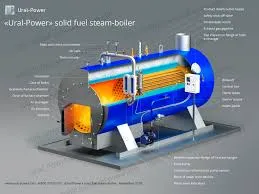
Dec . 12, 2024 05:05 Back to list
hot water boiler chemical treatment
The Importance of Chemical Treatment in Hot Water Boilers
Hot water boilers are pivotal components in various industries, providing necessary heat for processes, space heating, and domestic hot water. To ensure their efficiency and longevity, proper chemical treatment is essential. This article explores the significance of chemical treatments in hot water boilers, the types of chemicals used, and the benefits of maintaining optimal water quality.
The Need for Chemical Treatment
Water, inherently a universal solvent, can corrode metal surfaces and create scaling within the boiler system. The presence of impurities, such as dissolved oxygen, carbon dioxide, and hardness minerals, can lead to several problems, including corrosion, scale formation, and fouling. These issues not only reduce the efficiency of the boiler but also can lead to premature failure and costly downtime.
1. Corrosion Corrosion occurs when there is an electrochemical reaction between the metal surfaces of the boiler and the water. This process can be accelerated by the presence of oxygen and carbon dioxide in the water. If left untreated, corrosion can lead to significant structural damage and leaks.
2. Scaling Hard water, containing high levels of calcium and magnesium, can form scale on the boiler’s heat exchange surfaces. This scale acts as an insulating layer that reduces heat transfer efficiency, forcing the boiler to work harder to achieve the desired temperature. As a result, energy costs increase, and the lifespan of the boiler may shorten.
3. Fouling Fouling refers to the accumulation of deposits on heat transfer surfaces. These deposits can include biological growth, sediment, and mineral deposits, all of which impede the boiler’s ability to operate efficiently.
Types of Chemicals Used
To combat these issues, various chemical treatments can be employed. Each type of treatment targets specific problems associated with water quality.
- Oxygen Scavengers These chemicals, such as sodium sulfite or hydrazine, are used to eliminate dissolved oxygen in the water. By reducing oxygen levels, the risk of corrosion is significantly mitigated.
- pH Regulators Maintaining an optimal pH level is crucial for boiler operation
. Chemicals such as sodium hydroxide or phosphoric acid can be added to adjust the pH, leading to better corrosion resistance and stability in the boiler water.hot water boiler chemical treatment

- Sequestering Agents These agents, such as ethylene diamine tetraacetic acid (EDTA) or phosphonates, help prevent scaling by binding to hardness minerals and keeping them in solution.
- Biocides In systems where biological growth is a concern, biocides can be introduced to control microbial growth that could lead to fouling and biofilm development.
Benefits of Effective Chemical Treatment
Implementing a robust chemical treatment program offers numerous advantages for hot water boiler systems
- Improved Efficiency By preventing scale and fouling, chemical treatments enhance heat transfer efficiency, allowing the boiler to operate at optimal performance, thus reducing energy consumption.
- Extended Equipment Life Regular chemical treatment helps protect the boiler from corrosion and wear, ultimately extending its operational life and avoiding premature replacement.
- Cost Savings A well-maintained boiler system minimizes the risk of breakdowns and unplanned maintenance. This not only results in lower repair costs but also reduces the impact on production schedules.
- Enhanced Safety Properly treated hot water systems operate more safely, reducing the risks associated with leaks and failures that could cause hazardous situations.
Conclusion
Chemical treatment is a crucial aspect of managing hot water boilers effectively. By understanding the necessity of water quality management and implementing appropriate chemical treatments, facilities can ensure the reliability, efficiency, and longevity of their boiler systems. Investing in chemical treatment not only promotes operational excellence but also safeguards valuable resources against common issues associated with water quality.
-
High-Efficiency Commercial Oil Fired Steam Boiler for Industry
NewsJul.30,2025
-
High-Efficiency Biomass Fired Thermal Oil Boiler Solutions
NewsJul.30,2025
-
High Efficiency Gas Fired Thermal Oil Boiler for Industrial Heating
NewsJul.29,2025
-
High-Efficiency Gas Fired Hot Water Boiler for Sale – Reliable & Affordable
NewsJul.29,2025
-
High Efficiency Biomass Fired Hot Water Boiler for Industrial and Commercial Use
NewsJul.29,2025
-
High-Efficiency Biomass Fired Hot Water Boiler for Industrial Use
NewsJul.28,2025
Related PRODUCTS






















